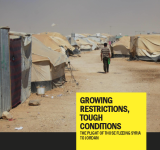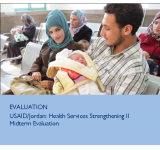يستند مضمون هذا التقرير المتعلق بالأردن إلى حد كبير إلى زيارة بحثية قامت بها منظمة العفو الدولية إلى البلاد في يونيو/حزيران 2013. وقد التقى وفد المنظمة بممثلي السلطات الأردنية ووكالات الأمم المتحدة والوكالات الإنسانية الدولية والمنظمات غير الحكومية والجمعيات الخيرية;; فضلاً عن أكثر من 150 لاجئاً من سوريا في مجتمعات اللجوء والمجتمعات المضيفة. ونشرت منظمة العفو الدولية هذا التقرير بهدف لفت الانتباه إلى الصعوبات التي يواجهها الفارون من سوريا طلباً للسلامة. وفي الوقت الذي يركز فيه التقرير بشكل رئييس على الأوضاع في الأردن;; فإنه يتضمن تحديثا للمعلومات التي كانت المنظمة قد نشرتها في السابق بشأن التحديات التي يواجهها اللالجئون من سوريا في البلدان المجاورة. وقد أمعنت منظمة العفو الدولية النظر في التحديات التي يواجهها اللاجئون في الأردن;; ولا سيما أولئك الذين يقطنون في مخيم الزعتري;; وهو أضخم مخيمات اللاجئين من سوريا في الأردن. وأجرت المنظمة تحقيقاً حول معاناة اللاجئين;; ليس من ظروف المعيشة القاسية في الصحراء فحسب;; وإنما أيضاً من ارتفاع معدلات الجريمة وغيرها من المخاوف الأمنية.

